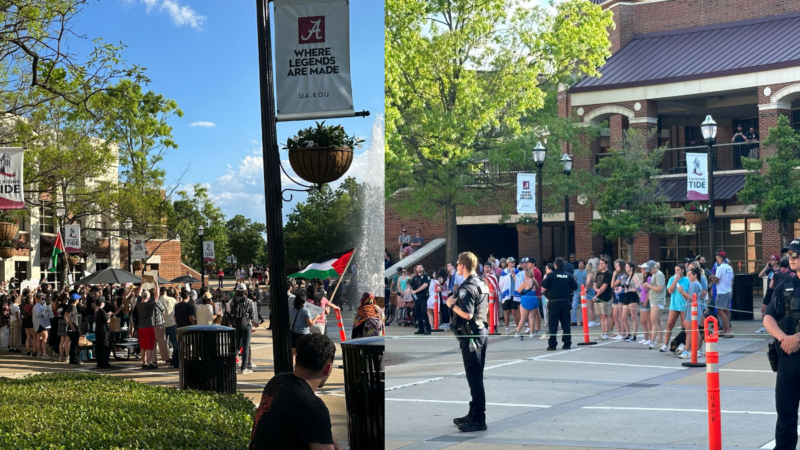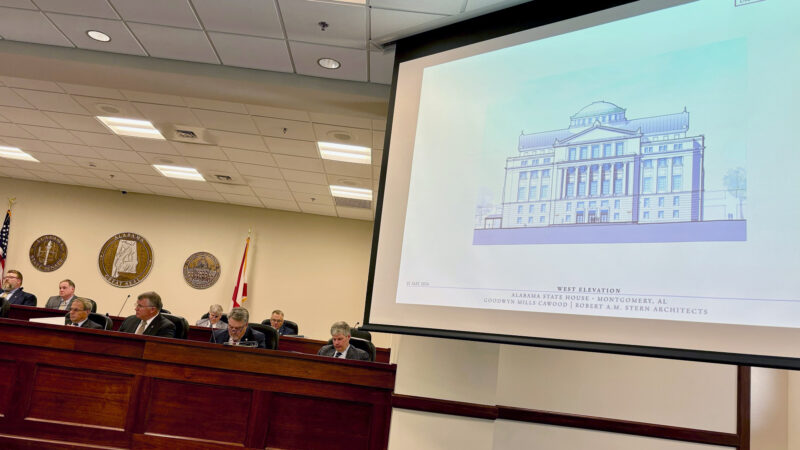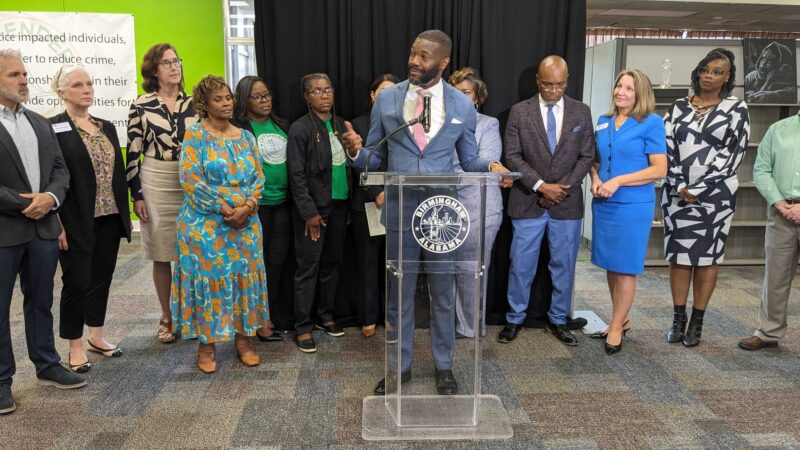What does the Arizona Ruling mean for Alabama?
What does the Arizona Immigration Law Ruling mean for Alabama?
While Arizona’s immigration law was the first to reach the U.S. Supreme Court, a similar but tougher law in Alabama faces its own legal challenge. That case has been on hold, pending a ruling on Arizona’s law. As WBHM’s Andrew Yeager reports, the question now is — what does Arizona mean for Alabama?
State Senator Scott Beason’s phone has been ringing off the hook.
“Everybody calls and says have you read the opinion yet and my answer is always, ‘no’ been on the phone constantly since…”
Beason sponsored the Alabama law. The Republican stands outside the Gardendale Civic Center, north of Birmingham, as a couple of reporters line up. Beason says the ruling is a mixed bag. He’s happy the so-called “show me your papers” provision was upheld. Not so happy three others were overturned. And he feels the court’s reasoning isn’t clear.
“Because of their ambiguity in the decision, it’s entirely possible that Alabama could fly and do very, very well.”
Or he says, it may not. Alabama’s speaker of the house says the court left the “teeth” of the Arizona law in effect and that’s a victory.
The Southern Poverty Law Center is among the groups which challenged the Alabama bill. Legal director Mary Bauer says while it’s not a perfect ruling it’s a strong blow to anti-immigrant laws. She says the ruling – in general — makes clear a state cannot enact its own immigration policy.
“And I think that means that much of Alabama’s law is sort of dead in the water.”
In addition to Alabama — Indiana, Georgia, South Carolina and Utah have similar immigration laws with legal challenges on hold.
University of Alabama law professor Paul Horwitz says yesterday’s ruling on Arizona, does not make these other cases a forgone conclusion. Courts will weigh provisions not in Arizona’s law. Judges may find wiggle room in the ruling. What it does, he says, is offer guidance.
“The Supreme Court often acts as a kind of traffic signal and it’s steering the traffic in a particular direction now.”
So with these immigration laws in the middle of that process, further legal showdowns are expected– something both sides of the debate do agree on.
~ Andrew Yeager, June 26, 2012.
~ Web version by Em Wiginton
Pro-Palestinian demonstration draws counter-protest at University of Alabama
Students gathered demanding the school call for a permanent and immediate ceasefire and to push the school to sever ties with defense contractor Lockheed Martin.
A new Statehouse and related projects will cost about $400 million
The Alabama Legislative Council, a 20-member panel comprised of legislative leaders and their appointees, approved the construction of the new Statehouse last year. The panel was given an update on the project on Wednesday.
New pilot program will offer housing, resources to people leaving prison
The Birmingham Reentry Alliance will provide wrap around services to dozens of men and women adjusting to life after prison.
Alabama committee advances ban on LGBTQ+ pride flags in classrooms
The Senate Education Policy Committee voted 5-2 for the House-passed bill, putting the proposal in line for a possible final passage in the last four days of the legislative session.
A New Orleans garden paid hundreds of dollars in fees for a sewer that doesn’t exist
Galvez Garden owner Lissie Stewart has been fighting the New Orleans Sewerage and Water Board over inaccurate billing for years.
Alabama coal mine keeps digging after hundreds of fines and a fatal explosion
Following the death of a grandfather, Crimson Oak Grove Resources has left a community afraid for their homes and lives. An expert warns one resident may need to evacuate her home while she still can.







